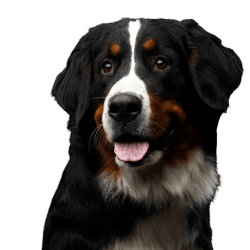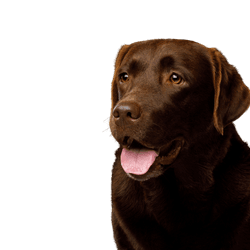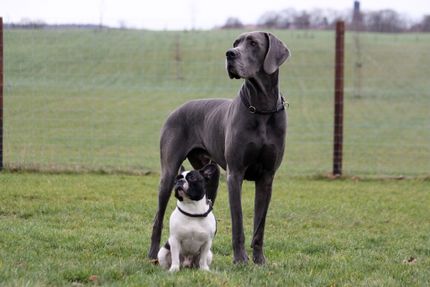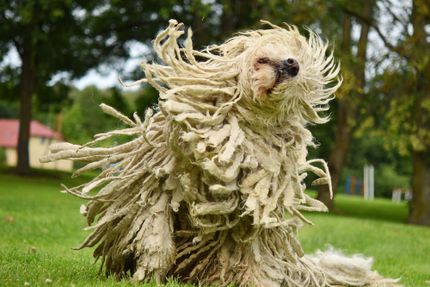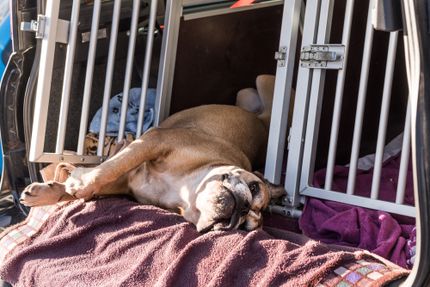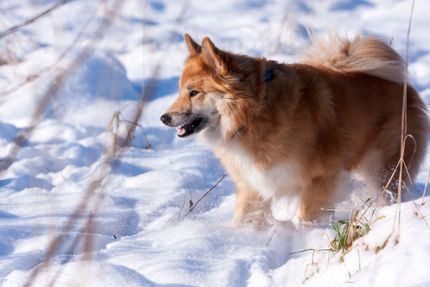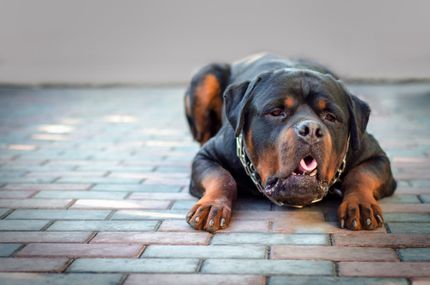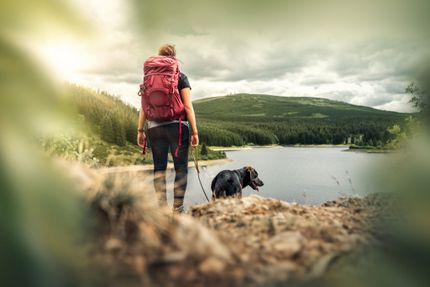Labernese:Bernese Mountain Dog and Labrador Retriever Mix
Facts & Origin
Labrador Retriever and Bernese Mountain Dog Mix - a hybrid breed.
The Labrador Retriever and Bernese Mountain Dog are the perfect blend of playful and gentle, making them an ideal family pet. With the laid-back nature of the Bernese Mountain Dog and the high energy of the Labrador Retriever, this breed mix is guaranteed to keep you entertained.
What are breed characteristics of this mix dog?
The Labrador Retriever Bernese Mountain Dog mix is a medium-sized dog with a muscular body. They usually weigh between 25-30 kg and are 50-60 cm tall. They have a short, dense coat that is either black, brown, or a mixture of the two colors. Their tail is long and thick, and their ears are floppy. They have a strong, square jaw and dark eyes.
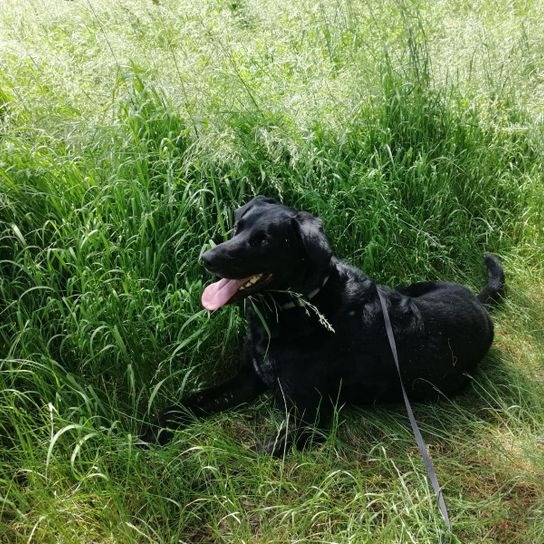


| Alternate Name | - |
| Origin | Switzerland - UK |
| Life expectancy | 6 - 14 years |
| Care requirements | high-maintenance - low-maintenance |
| Activity level | average |
| FCI group | not recognised |
| AKC group | not recognised |
| KC group | not recognised |
More Bernese Mountain Dog mixes
More Labrador Retriever mixes
Attitude, character and temperament of the breed
Possible character traits of Labrador Retriever and Bernese Mountain Dog mix - Such is probably his nature.
The Labrador Retriever-Bernese Mountain Dog mix is a popular choice among many dog lovers when it comes to mixed breeds. This guard dog is known for being gentle and good-natured, which makes it ideal for families with children. They are also known for being strong and athletic, making them great for walking or jogging.
This breed is a mix of two of the most popular dogs in the world, so it is no surprise that it is also one of the most popular mixed breeds. The Labrador Retriever is known as an outgoing, friendly dog that loves to play and have fun. They are also known for being loyal and protective of their family. The Bernese Mountain Dog is known as a gentle giant. He is calm, patient and good with children. They are also known to be loyal to their family and protective of them.
When you mix these two breeds together, you get a dog that is friendly, loyal, protective and good with children. They are also strong and athletic, which makes them great companions for walking or jogging.
Character
Usage


Health and breeding information
What diseases can occur in Labrador Retriever and Bernese Mountain Dog Mix.
The Bernese Mountain Dog-Labrador Retriever mix is a cross between the Bernese Mountain Dog and the Labrador Retriever. This designer dog is not recognized by the American Kennel Club.
The Bernese Mountain Dog portion of this mix is prone to hip and elbow dysplasia as well as cancer. The Labrador Retriever portion of this mix is also prone to hip and elbow dysplasia as well as cancer. This mixed breed is also prone to obesity.
The Bernese Mountain Dog-Labrador Retriever mix should be examined annually by a veterinarian for hip and elbow disease and every two years for cancer. They should also be fed a high quality food and get plenty of exercise to maintain a healthy weight.
What does this mixed breed look like?
This Labrador Retriever Bernese Mountain Dog mix has a dense, long coat of chocolate brown color. The coat is very dense and provides excellent protection against the cold weather. This mixed breed is also known for being very gentle and loving, which makes it an excellent family pet.
| Fur length | medium - short |
| Fur | flat coated |
| Ear shape | Floppy Ear - Triangle |
| Tail | fanned out - lang |
| Anatomy | massive, hefty, rugged, massive |
| Size ♀ | 55 - 66 cm |
| Weight ♀ | 25 - 48 kg |
| Size ♂ | 57 - 70 cm |
| Weight ♂ | 29 - 50 kg |
| Suitable For | Children, Beginner, Blind people, Children, Seniors |
Known Diseases
Hip dysplasia (HD)
The hip dysplasia or hip joint dysplasia of the dog (HD) is a maldevelopment of the hip joint.
Cancer
May be common in older dogs.
Kidney disease
Symptoms of kidney disease in dogs: increased urination (polyuria) increased water intake. Inflammation of the mucous membrane of the mouth. Loss of appetite
Overweight
Often, unfortunately, the dogs very much under excess weight. But the dogs themselves are never to blame!
Eye diseases
Often occur with allergies and intolerances.
Elbow dysplasia (ED)
Elbow joint dysplasia is a chronic disease complex of the elbow joint of fast growing dog breeds.
Joint damage
In some breeds, joint damage can occur later in life, affecting the musculoskeletal system.
FAQ
-
A Labrador Retriever/Bernese Mountain Dog mix is a cross between two popular dog breeds, the Labrador Retriever and the Bernese Mountain Dog. These dogs are often referred to as Labradors or Labradoodles.
-
They weigh 25-30 kg and are 50-60 cm high. They have a long, dense coat, which is typically black and white.
-
Labradors are known for being friendly, outgoing and energetic. They get along well with children and other pets and make great family dogs. Bernese Mountain Dogs are known for being loyal, protective and gentle. They also do well with children and other pets, but can seem too much like a guard dog for some families.
-
Labradors and Bernese Mountain Dogs need a lot of exercise, including a daily walk or run. They also need plenty of room to run and play. Both breeds tend to be overweight, so it is important to keep them at a healthy weight. Both breeds shed heavily, so regular brushing is required.
-
If you're looking for a friendly, outgoing dog that makes a great family pet, a Labrador Retriever-Bernese Mountain Dog mix might be right for you. They are also considered loyal and protective.
Useful Articles
You can find articles that might interest you in the dogbible blog to match your favorite breed.
Visit our magazineto stay up to date on dog trends.
To find out more, view our Privacy Policy
Find here the breed that suits you and find out what character traits it has. Here you can also learn more about the origin, size and weight of your favorite breeds.
Matching your favorite breed, you'll find articles that might interest you on the dogbible dog blog.
Hiking with dog in Saxon Switzerland
First vaccinations for the puppy - Legal situation, What vaccinations are good and important
Lyme disease in dogs - symptoms & treatment and why its so dangerous
